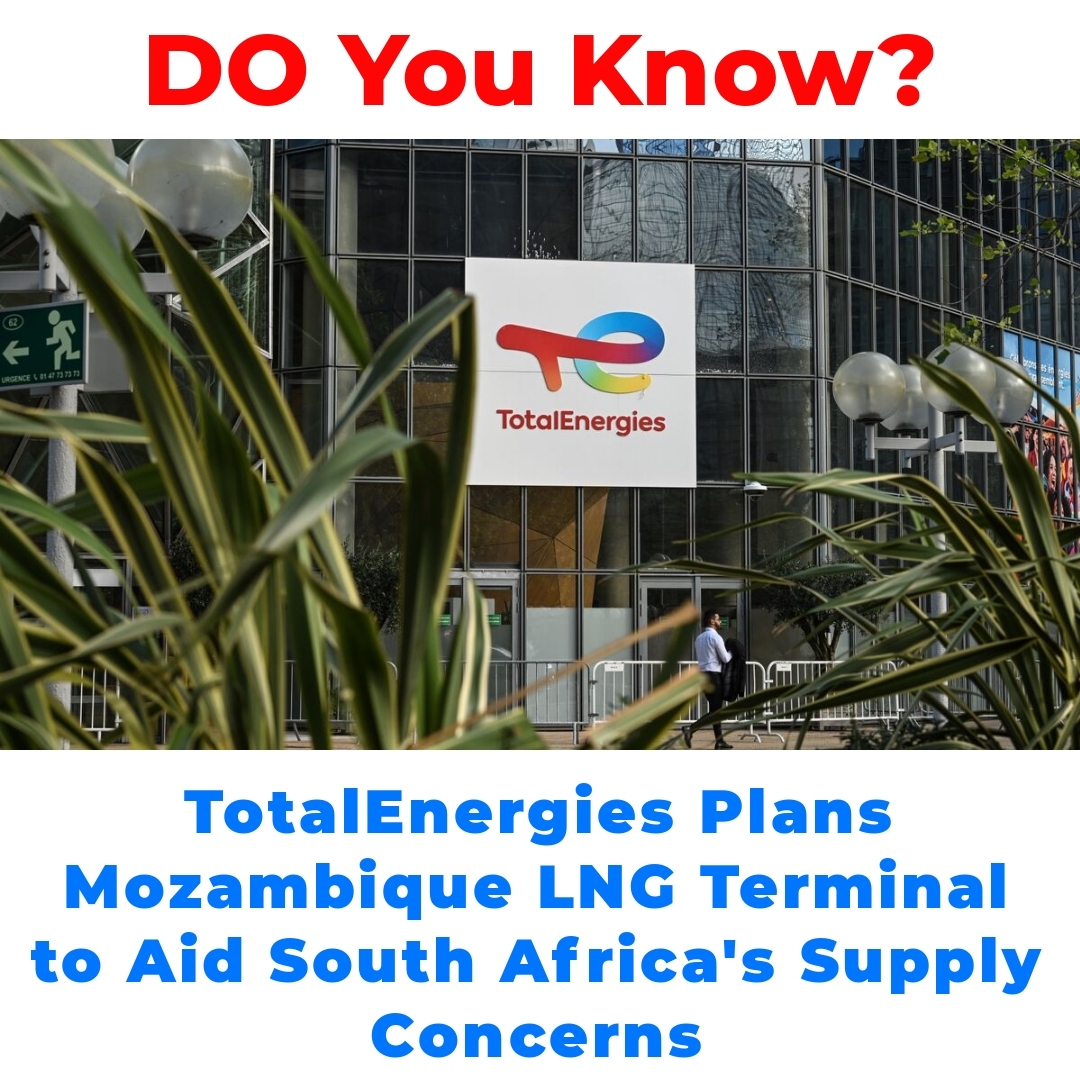As Southern Africa faces increasing energy demands, the **Liquefied Natural Gas Mozambique** project emerges as a pivotal solution. TotalEnergies SE’s development of an import terminal aims to alleviate South Africa’s potential supply crisis, fostering energy security and promoting sustainable natural gas use in the region.


The Liquefied Natural Gas Mozambique Project
The Liquefied Natural Gas Mozambique project is a significant venture aimed at boosting the energy landscape of Southern Africa. This LNG terminal is under development by TotalEnergies SE, a key player in transforming Mozambique’s natural gas resources into crucial energy supply for the region. The terminal will allow for the importation of natural gas, positioning Mozambique as an essential contributor in the global LNG market. With this facility, TotalEnergies is not only enhancing energy access but also promoting sustainable energy solutions across Southern Africa.
Addressing Supply Crisis in South Africa
South Africa is currently grappling with a potential energy supply crisis, stemming from a combination of aging infrastructure and increased demand. The Liquefied Natural Gas terminal in Mozambique is poised to provide much-needed relief. By facilitating imports of LNG, this project aims to lessen the dependency on traditional energy sources like coal.
If the country continues down its current path, the consequences could be dire, including blackouts and economic instability. However, with the establishment of an LNG import terminal, South Africa can stabilize its energy supply and improve overall reliability. The potential for LNG imports signifies a turning point in how the country approaches its energy needs.
Benefits of Importing LNG from Mozambique
There are numerous benefits for South Africa in importing LNG from Mozambique, particularly in the economic and environmental domains:
– **Economic Advantages**: The LNG imports will potentially lower energy costs, stimulate local economies, and create job opportunities in both Mozambique and South Africa.
– **Environmental Benefits**: Transitioning to natural gas is a cleaner option compared to burning coal or oil. It reduces greenhouse gas emissions, making it a more sustainable energy choice.
Discussing how the Mozambique LNG terminal will impact South Africa’s energy supply reveals that it not only addresses immediate energy needs but also positions both nations for a greener future.
The Strategic Importance of the Import Terminal
TotalEnergies SE has a clear strategy and vision behind the Mozambique terminal. Their approach involves not just building a terminal, but creating a robust infrastructure that links Mozambique’s abundant natural gas reserves with South Africa’s urgent needs.
Key features of this import terminal may include:
– Advanced facilities for gas processing and distribution
– Partnerships with local and international stakeholders to maximize efficiency
– A focus on safety and environmental sustainability
These components are crucial in enhancing the energy supply to South Africa and ensuring energy security in the long run.
Future Prospects and Challenges
Looking into the future, the evaluation of LNG imports from Mozambique indicates a promising outlook for South Africa’s energy security. However, challenges in the implementation of the import terminal still exist. Issues such as regulatory hurdles, infrastructure development, and regional cooperation need to be addressed effectively.
As this project progresses, monitoring its developments will be essential to understand how it can sustainably provide energy for years to come.
Conclusion
In conclusion, TotalEnergies SE’s efforts toward establishing an LNG terminal in Mozambique represent a crucial step for both countries. This initiative not only stands to alleviate the potential supply crisis in South Africa but also enhances regional energy security. The implications of the Mozambique natural gas project are vast, influencing the energy landscape in Southern Africa significantly.
As developments continue to unfold, it’s essential to stay informed about the advancements in the LNG sector and their potential impact on energy supplies.
Call to Action
For readers interested in the energy landscape of Southern Africa, it’s vital to stay updated on how the LNG import terminal in Mozambique evolves. This is not just about energy; it’s about fostering sustainable and secure energy solutions for communities across the region. Advocating for such solutions will contribute positively to the future of energy in Southern Africa. Let’s keep an eye on this game-changing project and its implications for our energy security!
FAQ
What is the Liquefied Natural Gas Mozambique Project?
The Liquefied Natural Gas Mozambique project is an initiative led by TotalEnergies SE to develop a terminal for importing natural gas in Mozambique, with the goal of improving energy access and contributing to the regional energy market in Southern Africa.
How will this project help South Africa?
This project aims to address South Africa’s energy supply crisis by providing an alternative source of energy through LNG imports, which can help reduce reliance on coal and stabilize energy supply.
What are the economic benefits of importing LNG from Mozambique?
- Potentially lower energy costs for consumers.
- Stimulation of local economies in both Mozambique and South Africa.
- Creation of job opportunities within the energy sector.
What are the environmental benefits of the LNG project?
Natural gas is a cleaner energy source compared to coal and oil. Importing LNG will help reduce greenhouse gas emissions, contributing to a more sustainable energy future for the region.
What will the LNG import terminal in Mozambique include?
- Advanced facilities for gas processing and distribution.
- Partnerships with various stakeholders to maximize efficiency.
- A focus on safety and environmental sustainability.
What challenges does the project face?
The implementation of the LNG import terminal may encounter challenges such as:
- Regulatory hurdles.
- Infrastructure development issues.
- Need for regional cooperation.
How can the public stay informed about the project?
Readers are encouraged to keep an eye on developments regarding the LNG import terminal in Mozambique as it will have significant implications for energy supply and security in Southern Africa.






